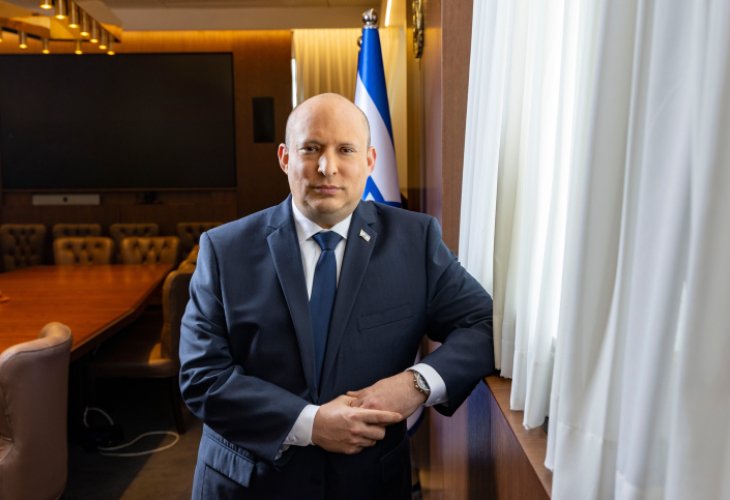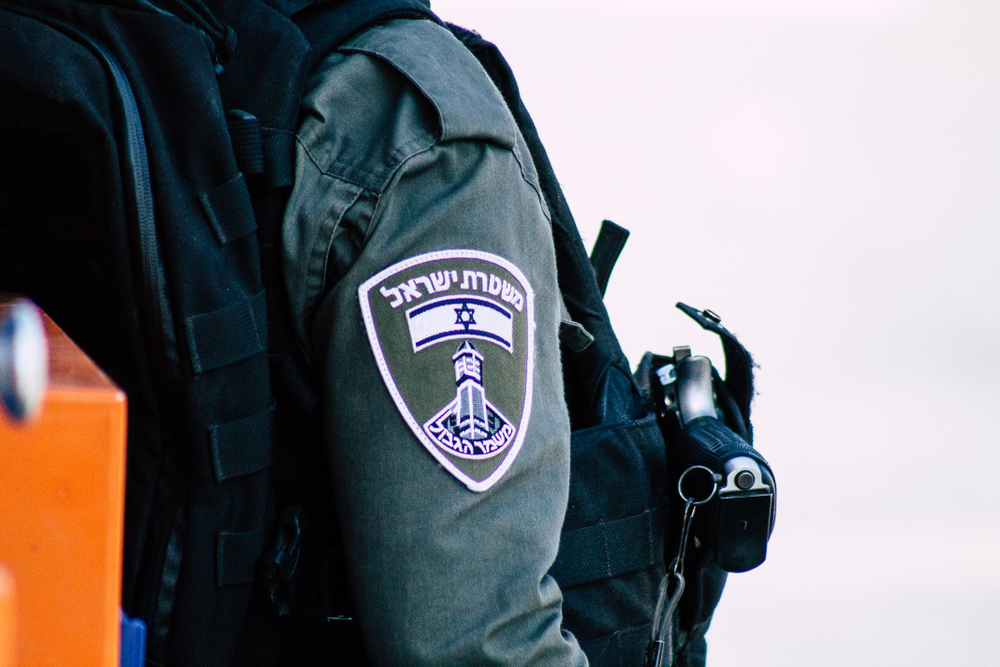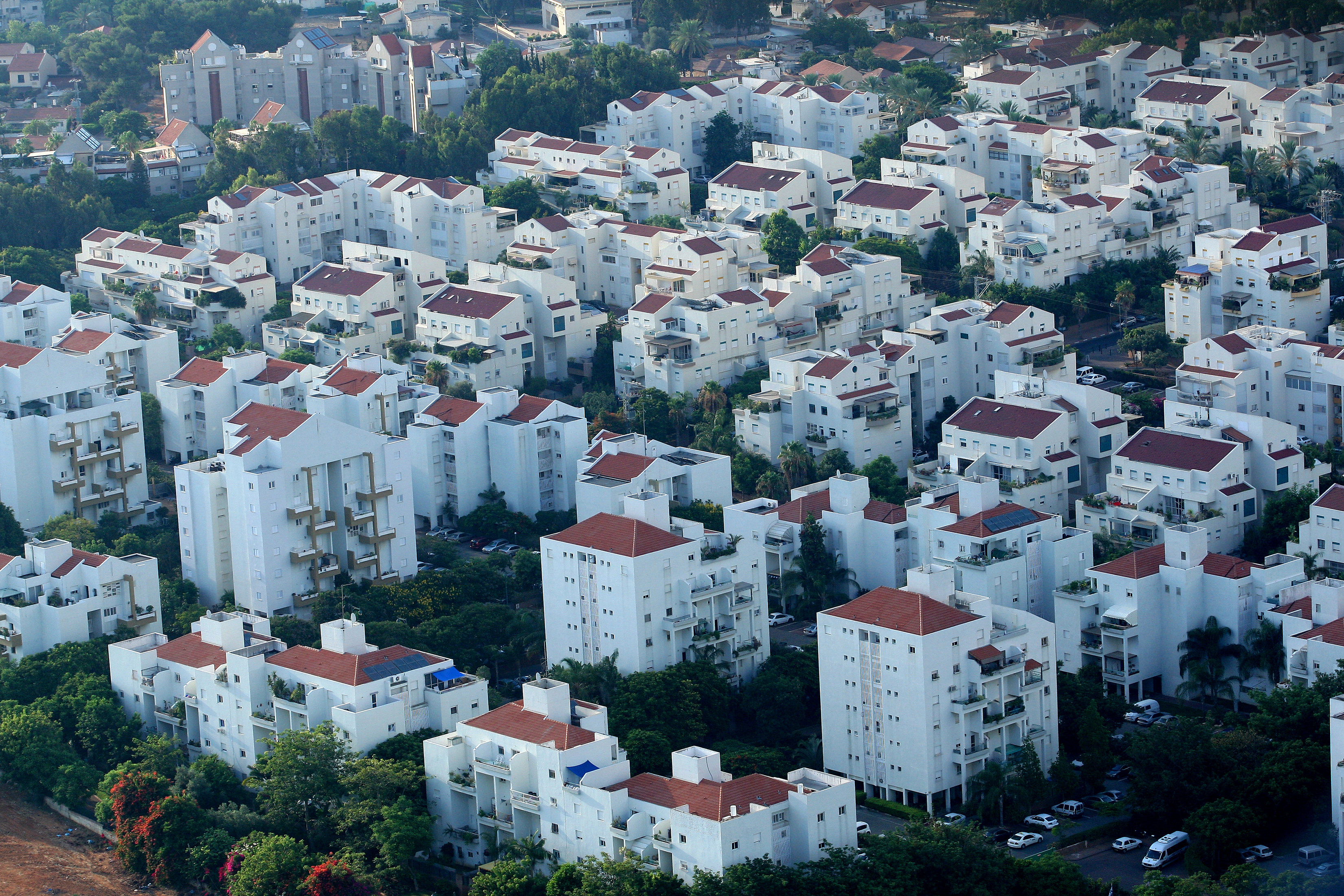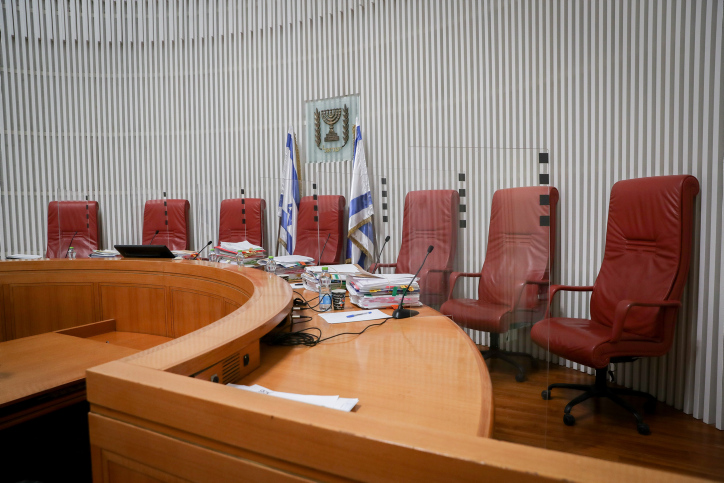"Electric Lockdown and Constant Movement": Bennett's Neighbors Share Their Experience
They never imagined their tranquil neighborhood would become a fortified compound with numerous Shin Bet security guards and incessant commotion. Unfortunately for them, after their neighbor became Prime Minister and decided to stay in his home, their lives turned into a continuous nightmare.
 (Photo: Olivier Fitoussi / Flash 90)
(Photo: Olivier Fitoussi / Flash 90)Dozens of cameras scattered over a wide radius monitor even the slightest movement, while armed guards constantly scan the area. What you just read doesn’t describe the security ring around a closed and secret military base, but a bizarre reality taking place in the heart of a well-kept apartment neighborhood in Ra'anana, created simply because the neighbor, Prime Minister Naftali Bennett, decided to continue living there instead of moving to the official residence in Balfour.
"We have to deal with a series of disturbances that accompany us every day, all day," says David Kimhi, a resident of the Tzippman neighborhood in Ra'anana, where Bennett lives, to 'Hidabroot.' He describes the situation in the neighborhood as one that has deteriorated over time. "At first it was still tolerable; many security guards arrived here, but we could maintain a certain routine. However, as time went on, the security tightened."
 (Photo: shutterstock)
(Photo: shutterstock)"Let me give you one example to illustrate the unbearable reality the residents here are going through," he says. "There was one neighbor whose house had a view of Bennett’s courtyard, but at some point, the security personnel decided this couldn’t continue and built a wall between his house and Bennett’s. No need to explain what that means," he adds, "That neighbor hardly gets any natural light in his house and also lacks a view. Does this reality seem logical to anyone?"
Kimhi doesn’t understand why Bennett insists on continuing to live next to them and thus harming their quality of life, wondering: "Can one imagine that the President of the United States wouldn’t reside in the White House?"
Kimhi, who works as an advisor to wealthy families, lives five houses away from the fortified compound erected on Tzippman-Allenby streets some time after Bennett was elected Prime Minister. "Initially, he was secured in other ways, but eventually, small tractors were brought in, and they built the wall around about ten houses in the neighborhood, effectively imprisoning the residents living there inside a fortified compound. For those residents, this situation is even more problematic than the reality I have to deal with," he says painfully.
Experiences from the Fortress
Ohad Shalom, whose house is one of the ten houses making up the fortified compound built around the Prime Minister’s residence, describes the harsh reality the residents face. "On a clear day, they erected walls from several sides, thus enclosing my house and a few others inside a wall. Since then, we've transformed from a regular neighborhood into a fortified compound where every exit or entry is particularly complicated."
What does it mean for you that your home is surrounded by a wall?
"A lot," he replies. "Let’s just say that every exit or entry to the compound requires us to identify ourselves and wait for the electric gates to open. Furthermore, leaving the confined area is only possible from one direction, whereas before the compound was built, I could leave my house in any direction I wanted.
"What about inviting guests for Shabbat?" he continues, "Since every entry or exit from the compound requires us to operate the electronic gates, we can’t invite guests over for fear of causing the Shin Bet guards to desecrate Shabbat."
Besides the wall, are there other security measures that disturb the neighbors?
"Certainly. It begins with the continuous surveillance of the Prime Minister’s surroundings, conducted via a series of cameras placed all over the area. These cameras invade our privacy since some are positioned opposite our windows. It’s a genuinely uncomfortable feeling. It continues with other disturbances and issues like the bright lighting illuminating the area to allow the Shin Bet to constantly scan the terrain. This lighting bothers us, especially at night. If that wasn’t enough, there’s also the noise made every time the electric gates open and close, disturbing our nighttime or afternoon rest.
"I could go on and on about the challenges we face due to Bennett’s insistence on staying in the neighborhood," he continues. "There's the issue of the guards' portable restrooms, posing a serious sanitation problem, and there’s also the considerable noise caused by the large number of security personnel frequenting the area."
Dr. Arieh Twil, who also resides within the compound established for Bennett’s security, says, "My home is located right opposite Bennett’s," and in a despairing voice, he recounts the experiences he and his family endure: "Eleven months of construction have passed us by. The hardest thing for us is the lack of sleep. During the night, the electric doors open and close every ten minutes on average. If you don’t sleep well enough, you wake up every time that happens. My wife no longer sleeps peacefully. The kids are tired. We’re all tired. Today I had to get up after a night with almost no sleep to work at the clinic."
Twil recounts that he approached the security guards and requested they not open the doors during the night. "They try to maintain quiet for us, but it’s apparently not so possible. Fixing this specific issue requires replacing the gate with a quieter one, but the municipality has not gotten back to us regarding this," he concludes sadly.
 Ra'anana (Photo: Moshe Shai / Flash 90)
Ra'anana (Photo: Moshe Shai / Flash 90)And you, David Kimhi, who doesn’t reside within the compound, what challenges do you face?
"Although the main sufferers are Bennett’s close neighbors living within the fortress, the rest of the neighborhood residents also face considerable challenges. For example, there was a public lot sprawling across Tzippman and Allenby streets where neighborhood kids used to come and play, but the Shin Bet took over the space, and now entry is prohibited."
However, Kimhi does not criticize the General Security Services. "We don’t argue about the security considerations of the General Security Service," he notes. "Our responsibility is directed toward Bennett and his wife, who insist on making our lives miserable by not moving to the official residence."
Kimhi also had to change his regular route home because of the neighborhood situation. "I used to pass through ‘the compound’ daily, utilizing the wide road there to get home. But now, instead, I’m forced to reach my house via narrower side streets, which also endanger my car. Additionally, the increased traffic on these side streets, due to Tzippman’s closure, pollutes these narrow streets, which are not built for heavy traffic."
Given these disturbances, are you considering leaving the neighborhood?
"Absolutely not," Kimhi firmly replies. "I am a third-generation Ra'anana resident, and I believe that Bennett is just about to become a 'former Prime Minister.'" After a moment of silence, he adds, "That’s our real hope: that this situation is temporary. Although there is concern they will maintain the security even after he leaves office for various reasons like Bennett being threatened and others. We hope this won't happen."
"Bennett's Close Friends Never Even Received a Call from Him"
Until the day Bennett became Prime Minister, his neighbors knew him as someone who didn’t cause any particular problems. "We used to greet him every day, and disagreements never arose between us," some of Bennett’s close neighbors tell 'Hidabroot.' "But everything changed when Bennett was appointed to the role."
Kimhi never had close relations with Bennett. "I hardly ever talked to him except for occasional greetings. Our only meeting was after his car scratched mine, and then he showed integrity by contacting the insurance company and paying the required compensation. I didn't know him beyond that, and I didn’t trust him enough to vote for him. It turns out I wasn’t wrong."
In Shalom's case, the situation is more complex. "I used to occasionally return from the synagogue with Bennett, and we would chat about this and that, including politics. But I could never believe he would take such a step, detaching from all his professed values. That’s why I voted for him, and I am extremely disappointed by his alliance with Abbas and the radical left and his detachment from the opposition members who are our real allies, the ultra-Orthodox, Smotrich, and nearly a million Likud voters."
But Shalom wishes to focus primarily on the situation in the neighborhood. "Events in the neighborhood are not political but personal-family issues. We suffer every day only because of Bennett’s unconventional behavior. A Prime Minister should live in the official Balfour residence," he asserts.
Neighbors on Tzippman Street share with 'Hidabroot' their experiences of being neglected by Bennett and his family. "There are people here who didn’t even receive a call from Bennett and his family since they assumed the role," one neighbor tells us off the record. "There are close neighbors who were on friendly terms with the Bennett family; some hosted the Bennett family for Shabbat meals and vice versa, but since he became Prime Minister, there have been no conversations from the Bennett family. No apologies or even polite conversations."
Can it be assumed that as neighbors of the Prime Minister, you also face spiritual challenges due to this unusual situation?
"Certainly," Kimhi responds, describing a case showing just how the harm to the neighbors and acquaintances integrates with harm to religious values. "On the gate walls erected around the neighborhood, mezuzahs weren't installed, and thus, as believing Jews, we approached the Prime Minister's office and asked them to set mezuzahs at the three entrances. After some time, they gave us an unbelievable response: they couldn’t find a budget for this, they explained. You understand? Structures worth tens of millions of public money were erected here, yet they didn’t have a few hundred shekels left for a mezuzah. Ultimately, the neighbors had to collect funds themselves to place a mezuzah at the entrances to the fortress."
It doesn’t end there. To reach the neighborhood synagogue, some neighbors have to pass through the compound fenced by the Shin Bet. "If on weekdays the path is closed by the guards and it's impossible to pass from one side to the other, although at least using a car is an option – on Shabbat, the situation differs. To reach the neighborhood synagogue or other areas beyond the wall, we need to request passage through the electronic gates placed at the compound's entrances – which causes the guards to desecrate Shabbat. And here, at least, due to heavy pressure applied on them, the gates open automatically during prayer times on Shabbatot, aimed at allowing people to come and pray at the synagogue, and those who want to make their way during prayer times must arrange in advance and receive prior approval. Yet, there remains the spiritual question, considering that the Shin Bet guards standing at one part of the walls need to update their colleagues about people entering. There are rabbis who permit passing despite this, while others prohibit it. The bitter taste of Shabbat desecration persists in any case, even according to those who allow it."
Legal Issue
Recently, your lawyer found that all the structures erected which make your lives miserable are entirely illegal. What exactly did he discover?
"The legality of the place was always before us," Kimhi surprises. "We tried to inquire about the construction legality because even if it’s the Prime Minister, like any other structure in the country, minimal building permits from a court are required. We are a law-governed country. But it turned out they didn’t have any legal permit to build the place."
This absurd reality became clear to the neighbors in court after they united and filed a lawsuit with the Supreme Court, trying to prevent their neighborhood from turning into a closed military zone. "Initially, the prosecution said they would present us the plans before construction, and we could submit objections," Kimhi says. "Eventually, they built it without presenting the plans to us, so we couldn’t submit objections. Thus, they established facts on the ground. Following that, we turned to the court and requested a discussion on the matter. In response, the state dragged its feet deliberately. Sometimes they needed to bring the documents and therefore asked for a delay; on another occasion, they claimed coordination was needed with various entities. The last time, they even surprised the judges by stating they had to postpone the discussion because the person supposed to submit them contracted COVID-19. After a long period of delays, they simply appeared before the court and shamelessly declared there was nothing to discuss since the work was nearly finished..."
 (Photo: Flash 90)
(Photo: Flash 90)The neighbors, thinking they couldn’t be further surprised, were stunned to hear in one of the discussions that the legal advisor of the Prime Minister’s Office wrote a document addressing the legality of the construction in Ra'anana, from which it emerges that it’s not clear whether Bennett's house in Ra'anana can be defined as the Prime Minister’s residence. This document has significant implications. These contents were concealed by the prosecution. Also hidden was the non-submission of the request to renovate the house to the Finance Committee as required by law. Thus, the budget for renovations around the Prime Minister’s house in Ra'anana was transferred illegally.
In conclusion, Kimhi says: "With the budget allocated to Tzippman in Ra'anana, all of which is public money, they could have turned the official residence in Balfour into a palace. Instead, one of my friends, living near Bennett’s house, has to cope with a wall built right next to him, blocking natural light. I never truly believed in Bennett," he continues. "I knew he was using the 'Jewish Home' party for his purposes. His statements were for me sheer lies, and I certainly wasn't surprised when he teamed up with Ra'am, and to my personal disappointment, also when he decided to make our lives miserable thereafter."

